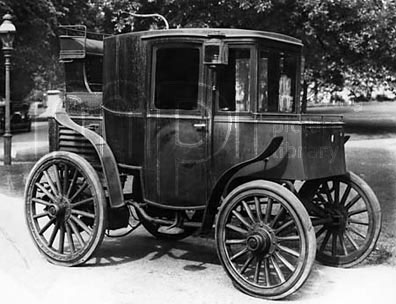Technology Time Lines
E-books are to books what horseless carriages are to horse-drawn carriages. In other words, we are only a short distance down the path to the development of digital writing, publishing and reading.
Would it be possible to say that the term e-book should be discarded as Horseless Carriage was supplanted by Automobile or eventually the “car”?
I wonder.
It has not been easy for digital printers, even Lightning Source, the largest, to get across the notion that Digital Short Run printing is really a better, more descriptive and more accurate term for what they provide than "POD," but Print on Demand sounds better, and POD seems to make more sense to folks than the more opaque DSR.
Terminology is likely not created by the technologists who make the products and maybe not even by the marketers who sell them. It’s always about the users and what they see, feel and believe.
Television was in many ways a new development, not radio with pictures, and not exactly movies at home on a tiny screen. Television is a great descriptive and TV is the perfect abbreviation for modern culture, and thus has been absorbed into the zeitgeist at a very deep level.
It seems to me that the true definition of an e-book may be difficult to create. People like the term “e-book,” because it is descriptive and connotative (much like Horseless Carriage is a perfect description of the early automobiles, and works in the same way we have created in the e-book a sort of relational analogue to the print book).
We know what a book is. An “e” book sounds just like what it is, an electronic book.
But now change is accelerating in technology, and the display of book-like content on screens of many types and sizes, and what will emerge over the next few years is an explosion of digital reading technology. And with that will come an explosion of creativity, as publishers, authors and technologists try to imagine what the digital reading experience can and should mean to readers.
Soon after the first horseless carriages hit the roads, inventors in garages and barns all over America (and the world) were building their own versions of motorized transport. We saw cars that ran on steam, electricity, and gas, cars with six wheels, cars steered by tillers, engines in front, middle and back, one cylinder, two cylinders and many more variations on what motorized vehicles could and would be. Some worked, some didn’t, but as time went on, inventors, manufacturers and retailers all learned what really worked for drivers and passengers, who literally drove the technology into use.
We are seeing the same sort of innovation in reading devices and content now. We will soon learn what works and what doesn’t, and we can be certain of experiencing many aha moments as the future unfolds. And just as many, or more, deadends, good ideas that fail, great technology that simply does not delight and thrill the user.
From the writers’ and readers’ perspective, what we are creating are Digital Reading Experiences on Digital Reading Platforms and Devices. But no one wants to say “how’s that new Digital Reading Device you bought the other day?”
Maybe until a perfect new term like “blog” is coined by someone, we’ll be stuck with “e-book” even as the range of what is possible to be written, made, displayed, read and consumed expands exponentially. And maybe what we will call these objects and experiences does not really matter as long as they are great at what they do.
Meanwhile, pass me that DRD would you?
David Wilk
February 1, 2012


